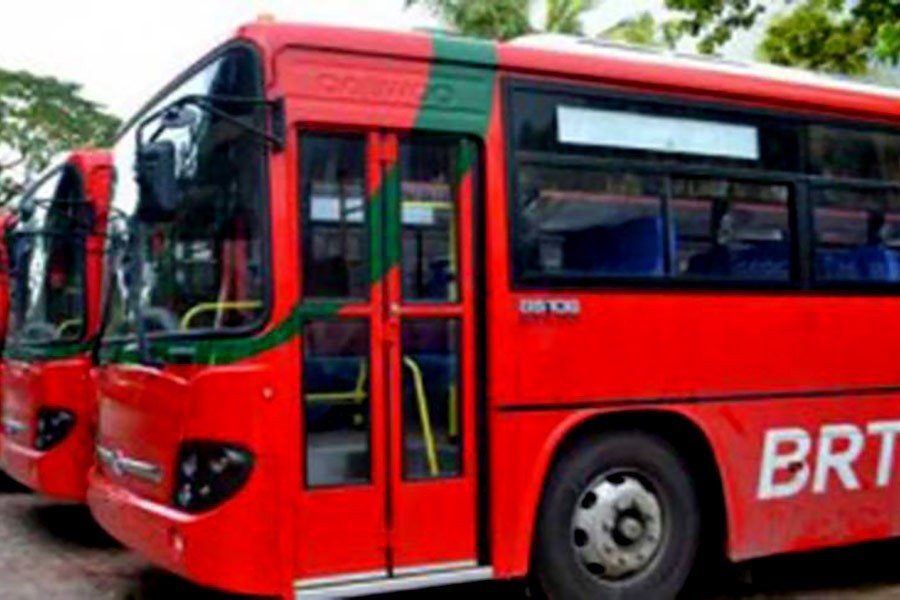The news that the Bangladesh Road Transport Corporation (BRTC) has become a profitable entity after incurring losses for decades is worth celebrating. However, behind the celebration a feeling of unease continues to linger for a couple of reasons. First, the image of the autonomous corporation people easily relates to is its bus service which unfortunately is not responsible for earning profit for it. It is the newly acquired fleet of 500 trucks that has made the miracle possible. Imported from India under its third line of credit, these trucks have been busy carrying goods all across the country, even during the pandemic, since their launch in 2019-20. No wonder, until August this year, they have made a net profit of Tk 157 million (earned Tk 789 million as against an expenditure of Tk 632 million). This is how the addition of the goods transportation service seems to have given a new lease of life to the transport corporation.
What has proved a commercial success is the business acumen that has gone into making deals with various state entities for offering the BRTC truck services. Under the agreements it has entered into with the Bangladesh Chemical Industries Corporation, Karnaphuli Paper Mill, the Bangladesh Army, Fenchuganj Fertiliser and the Department of Disaster Management, the BRTC trucks are available for transportation of their goods. Sure enough, other state bodies and organs will be encouraged to make use of the BRTC trucks. If managed well, the fleet can expand further and make many times more profit. To give a further shot in the arm, an addition of covered vans to its fleet of freight transportation should be considered seriously. If trained drivers are recruited for operation of trucks, the service will be in high demand for understandable reasons.
However, given the past experiences of rampant abuse, malpractices and corruption in the corporation, a lingering fear will continue to haunt if the happy days will sustain. There was no reason for the Volvo or the Ashok Leyland double-decker buses to go off the road so soon. Also the articulate buses proved to be a total failure --- all because those were deliberately made to fail. The buses were not at fault. If private bus companies can make hefty profit and add new buses with the profit made, why did the BRTC have to incur losses unabatedly? Road Transport and Bridges Minister ObaidulQuader once expressed his repugnance at the BRTC losses and posed a similar question.
It is time the BRTC buses, instead of grounding them on this or that pretext, were run in an efficiently commercial manner like the trucks. In neighbouring West Bengal, state buses are so well maintained and run efficiently that the public prefer them to the buses run by private companies. There is no reason why this should not be the case here as well. Last but not least, the truck service can be better employed in helping farmers carry perishable items from farms to urban centres where the demand is high. Thus farmers will not be compelled to dispose of their produces at throwaway prices and at the same time consumers at their end will not be required to count atrocious prices for the same.


